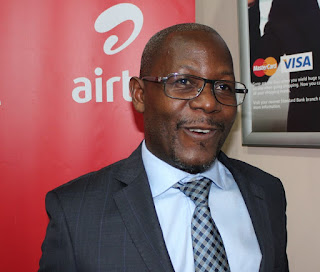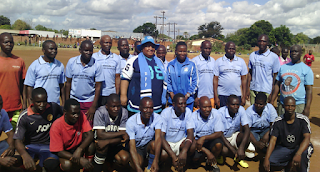President Peter Mutharika has stressed that Cabinet Secretaries have capacity to help African Governments move the right direction by providing the cabinets with evidence based policies.
Mutharika was speaking at Kamuzu Palace in Lilongwe on Monday when opening Third Africa Cabinet Secretaries Roundtable Workshop expected to end on 22nd April 2016.
Delegates from fourteen African countries are participating in the workshop themed: Enhancing Government’s Effectiveness through Evidence-informed Policy-making.
Mutharika said the conference comes at a time when many African Governments are trying to develop and implement policies that will bear fruits for their citizens particularly policies that directly address poverty, inequality, as well as corruption.
He emphasized that problems facing the continent of Africa can be addressed adequately through evidence based decisions and therefore “without evidence as the basis, policies are bound to be theoretical and unpractical” that “simply end up on book shelves, left to gather dust”
“Cabinet Secretaries fulfill a very critical role in the policy-making process.” Said Mutharika
“It is your duty to ensure efficiency and effectiveness in Cabinet decision making. It is your duty to ensure availability of evidence to Cabinet. This includes, among other things, making sure that all relevant stakeholders at all levels, including the beneficiaries of the policies, are engaged sufficiently in the development of the policy process. It is your duty to ensure that appropriate procedures are developed to guide the policy-making process.” He said
“If Africa is to move forward, we cannot tolerate haphazard policy development. We cannot accept policies that do not listen to the people, to the procedures, and to evidence.” Stressed Mutharika
He then reminded the delegates that “Africa is waiting for the results” and that Council of African Cabinet Secretaries is a living symbol of African government’s commitment to strengthen decision-making processes. He therefore urged delegates to seize this opportunity to engage adequately with each other and put together the best lessons they can.
“What we bind in union cannot be unbound easily. This is your moment to form strong networks for sharing ideas and experiences. This is your moment to partake in the refocusing of the African vision. Show us the path of effective decision-making; and Africa will follow.” added Mutharika
Among others Mutharika said Malawi is making efforts to enhance the policy-making process. He pointed out the recently launched ‘Public Policy Research and Analysis Project’ aimed at strengthen the development and implementation of policies that are based on evidence as well as the development of a Policy Manual called ‘The Guide to Executive Decision-making Process’ a reference tool for all those who are involved in policy formulation and implementation.
Dr. Ernest Surrur, President of the Council of African Cabinet Secretaries said the meeting will deliberate on policy formulation with focus on evidence and that the second agenda is on Role of Cabinet Secretaries in political transitions.
He also mentioned that the third agenda seeks to invite some Cabinet Ministers to better understand their perspectives in the decision making processes.
“One question for this discussion, is how to foster an evidence culture in cabinet where ministers will question their colleagues about the evidence to support the proposals from the perspective of the broader interest of Government rather than political point scoring as they compete with one another for financial resources and also for approvals of the President.” said Dr. Ernest Surrur,
Dr. Surrur, said the network is supporting African Cabinet processes including strengthen capacity of secretariats to better support cabinet members on making better informed and collective decisions.
The first meeting of this kind was held in Ethiopia in 2014 while Ghana hosted second meeting in 2015.
The network was established in 2004 with a group of Secretaries to Government or Chief Secretaries where they meet periodically and consult each other and also mobilize resources for the trainings of the staff in the Cabinet Secretariat.
George Mkondiwa Chief Secretary to Malawi Government said Malawi has benefited immensely through the trainings from the network among others he said there is now a cabinet calendar where everyone would know when is cabinet meeting going to take place.
Mkondiwa also mentioned the trainings have led to the development of a Policy Manual called ‘The Guide to Executive Decision-making Process’
Delegates to the workshop include Cabinet Secretaries or their representatives and other senior officials from Cabinet Offices of Botswana, Ghana, Lesotho, Liberia, Rwanda, Sierra Leone, Somalia, Somaliland, South Sudan, Tanzania, Uganda, Zambia, Zanzibar and Malawi.
The workshop is an initiative of the Africa Cabinet Government Network (ACGN) which was established in 2014 as a voluntary organization for Cabinet Secretaries.The ACGN, whose headquarters is in Freetown, Sierra Leone, serves as a platform for cross-country collaboration on evidence-based decision making and Cabinet procedures.
The network was created out of necessity to provide formal and informal opportunities for the collaboration, mutual support and sharing of practical experiences.The network was as well established to provide technical assistance to the cabinet secretaries and others involved in managing the cabinet processes in Africa in order to facilitate evidence informed collective decision making bygovernments and effective implementation of their decisions.















































